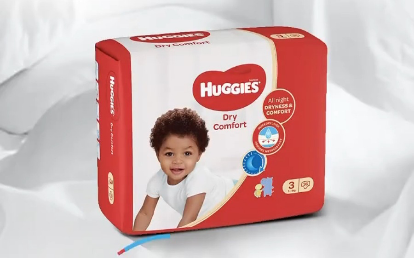
Huggies Diapers Manufacturer To Stop Production In Nigeria After Investing $100 million Three Years Ago

Kimberly-Clark, the global manufacturer of Huggies diapers and Kotex sanitary pads, will soon announce the closure of its Ikorodu production facility.
This decision comes two years after a substantial $100 million investment to revive operations in Nigeria.
Speaking to Nairametrics, sources within the company cited severe economic challenges, including high energy costs, expensive raw materials, and reduced customer demand, as the primary reasons for the shutdown.
According to Nairametrics, the Ikorodu plant, inaugurated in 2022, marked Kimberly-Clark’s return to Nigeria after a similar shutdown in 2019 due to unfavourable economic conditions.
However, the company has struggled to operate at total capacity since late 2023, reflecting broader difficulties within the industry.
Like other manufacturers that have closed businesses in Nigeria recently, high production costs have been a significant issue for Kimberly-Clark.
The company says it spends approximately N100 million monthly on power generation alone, with total operational costs exceeding N500 million monthly.
This financial strain reduced shifts, with the facility operating only from Monday to Thursday, compared to its previous 24/7 schedule.
Our first two years were fantastic in terms of sales growth and market share within the diaper industry,” a company insider stated.
However, late 2022 and 2023 were tough due to the economic situation. Running costs are extremely high, and our fixed monthly expenses are above N500 million.
The source also told Nairametrics that the company had downsized from four shifts to two and implemented an embargo on external recruitment as part of its cost-cutting measures.
High raw material costs, driven by reliance on imports, have further exacerbated the situation.
Kimberly-Clark’s impending closure mirrors the struggles of other multinational manufacturers in Nigeria, such as Procter & Gamble and PZ Cussons, which have either exited the market or undergone strategic reviews of their operations.
These developments significantly challenge Nigeria’s efforts to attract foreign direct investment.
With Kimberly-Clark’s exit, two of the three leading players in Nigeria’s diaper and personal care industry have ceased local production in the past year.
This trend could lead to higher costs for consumers and increased import reliance at a time when the Nigerians are emphasising local production.
About The Author
Related Articles
Zimbabwe Rejects $350m US Health Deal Over Sovereignty Dispute
Zimbabwe has formally withdrawn from negotiations on a proposed $350 million health...
ByWest Africa WeeklyFebruary 25, 2026Niger’s President Outlines Vision for Strategic Partnership with China
Niger’s Head of State, General Abdourahmane Tiani, has articulated a renewed vision...
ByWest Africa WeeklyFebruary 25, 2026Fire Destroys 140 Tonnes of Cotton in Western Burkina Faso
A major fire has destroyed more than 140 tonnes of cotton in...
ByWest Africa WeeklyFebruary 25, 2026Mali’s New Ambassador to Angola Presents Credentials, Pledges Stronger Bilateral Ties
Diplomatic relations between Mali and Angola entered a new phase on February...
ByWest Africa WeeklyFebruary 25, 2026











